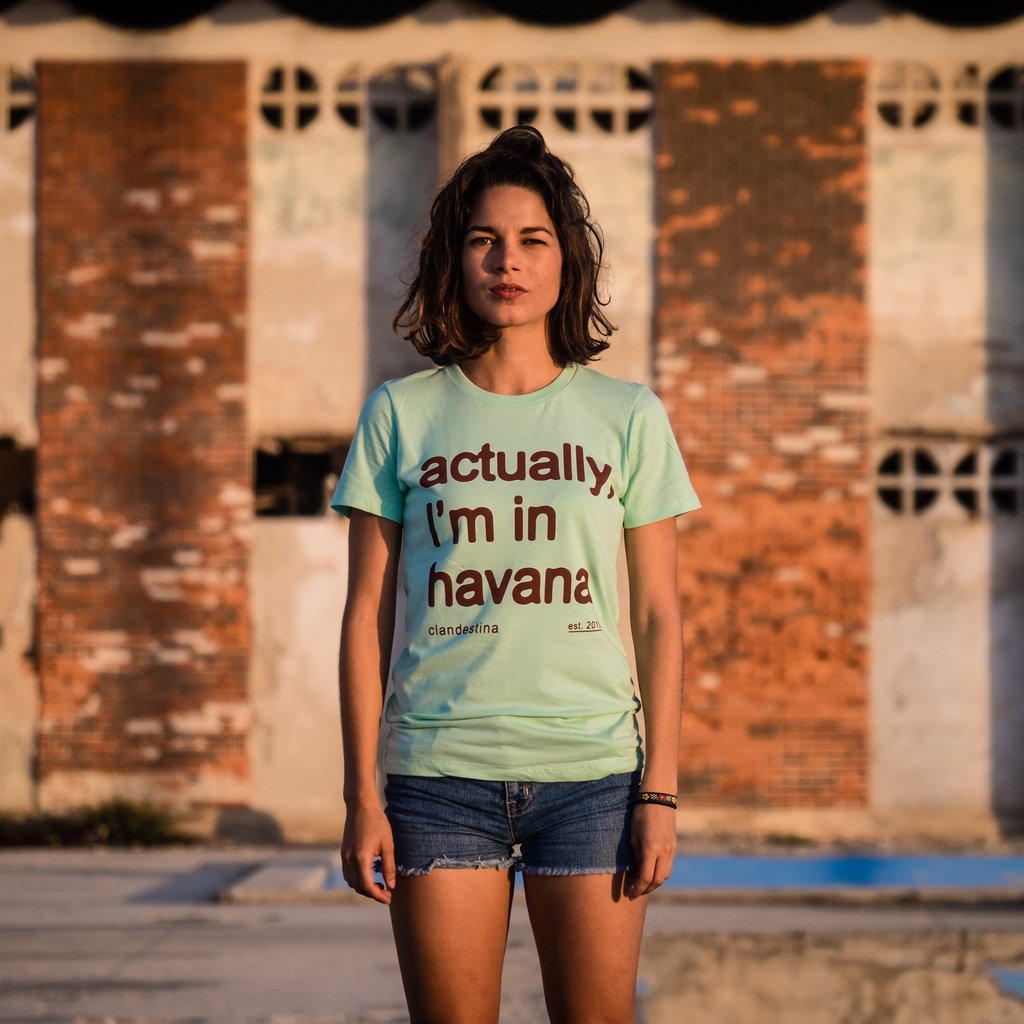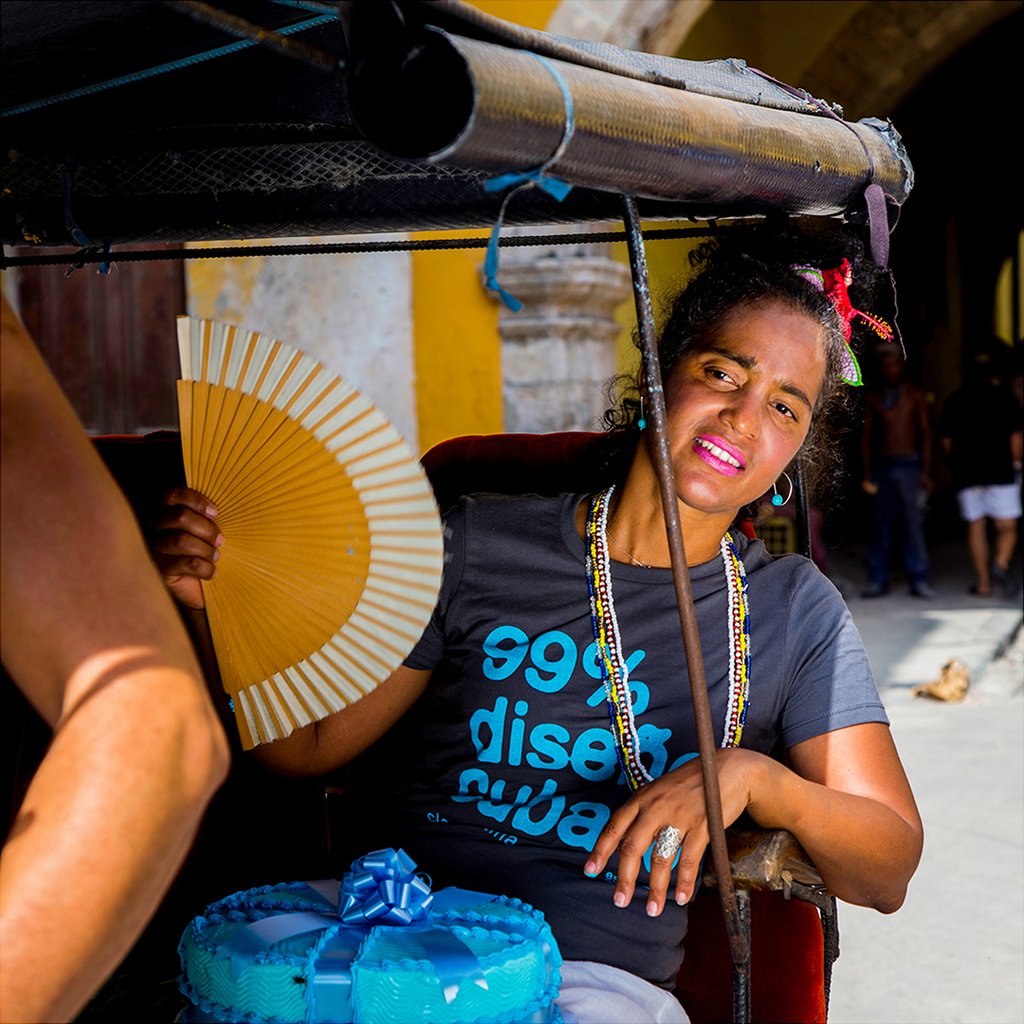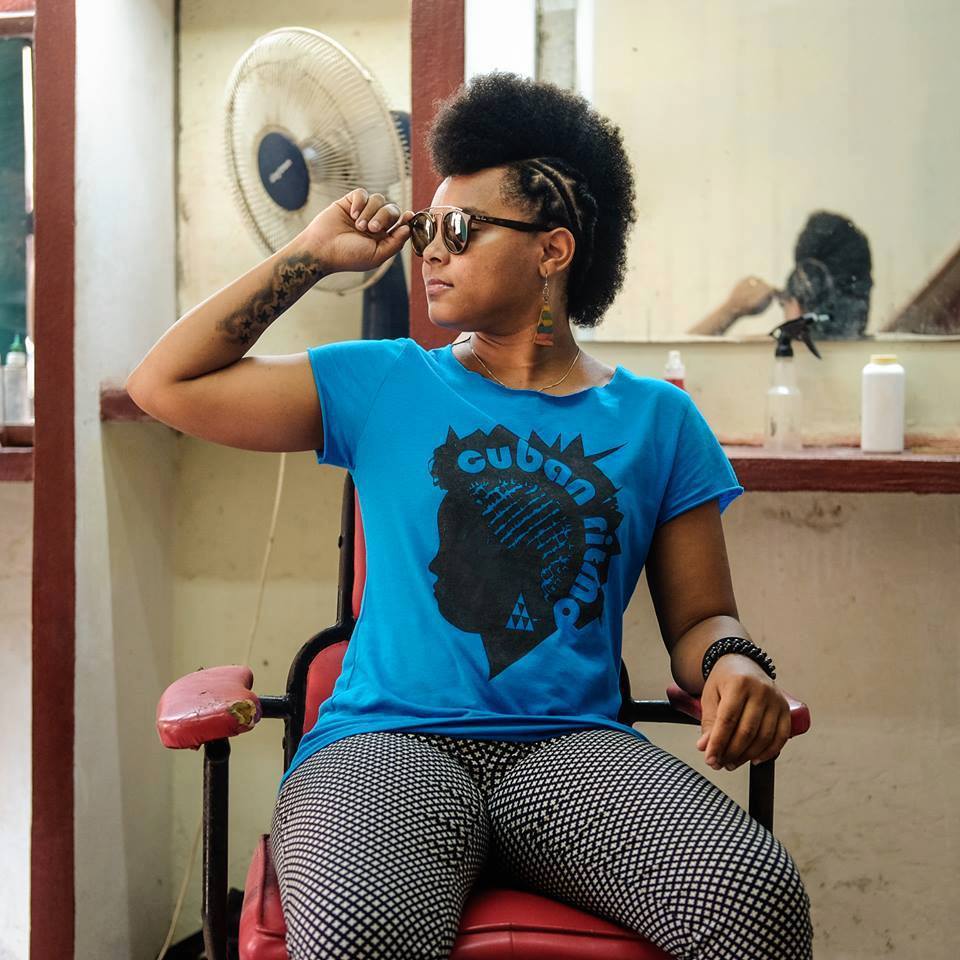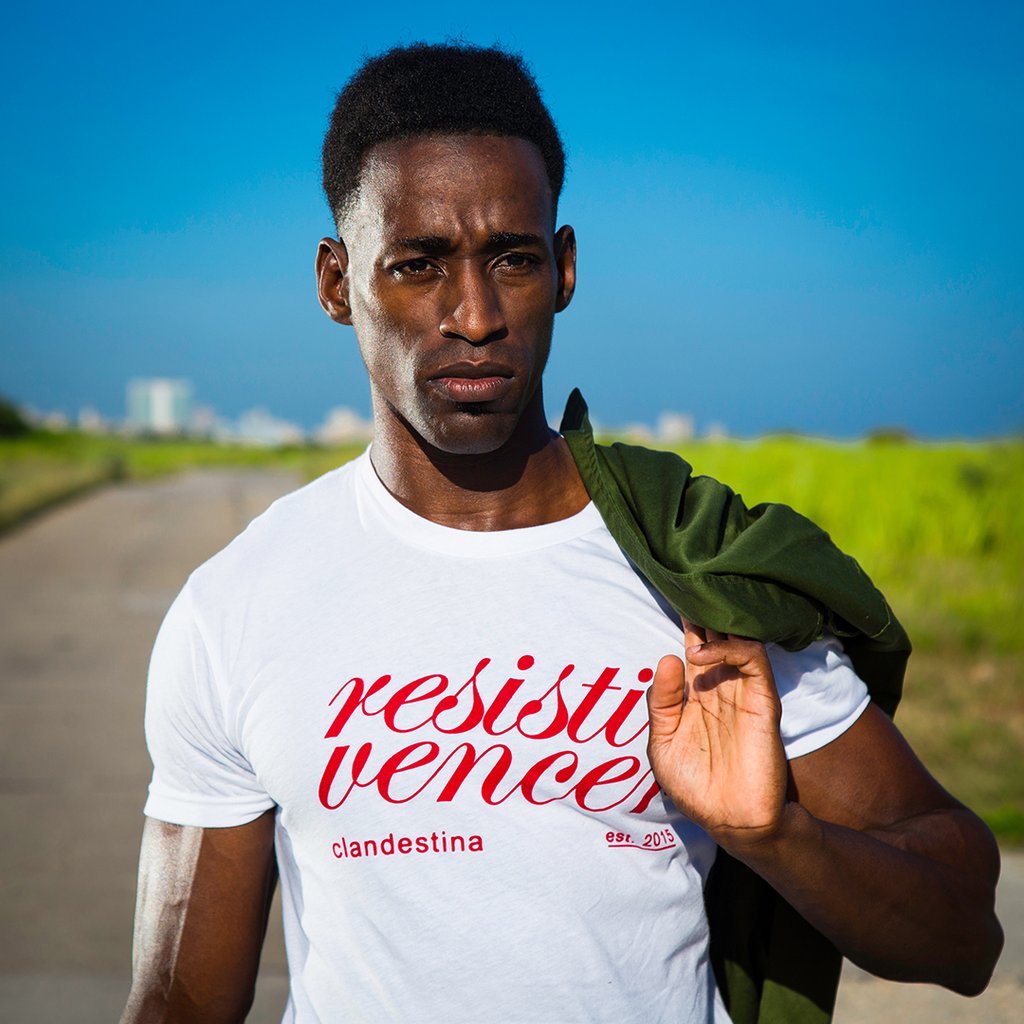Walking through the streets of Old Havana you will see all the things everyone who visits Cuba expects to: palm trees, men polishing their immaculately-preserved American cars from the 1950s, swarms of tourists drinking daiquiris while taking selfie-stick photos as live bands play salsa covers of Despacito. Every doorway that isn’t filled with someone trying to entice you in for rum-based cocktails is lined with souvenirs: endless bric-a-bac ranging from baseballs to keyrings to wooden boxes and colourful painted shot glasses. And of course, bottles of Havana Club rum, cigars, and Che Guevara t-shirts.
Amidst all this I stumbled upon a cool, airy store selling a different kind of Cuban souvenir. The space — similar in style to a store you might find in Covent Garden — is adorned with posters of art by Cuban designers, colourful t-shirts covered in fun prints and slogans, and bags made from upcycled trash. Pictures of good-looking models wearing the brand’s “99% diseño cubano” designs cover the walls and, at the back of the store, two people are working a printing press. This is the home of Clandestina, “Cuba’s first clothing brand”.

Clandestina was founded in 2015 by Idania del Rio and her partner Leire Fernandez. As Fidel Castro’s health worsened and his grip on the country weakened, his brother Raul announced changes to the communist private sector in Cuba. It was in this environment, that the two women saw their chance.
“It looked like an opportunity to do something different”, Del Rio tells me from her office above the store. “People were opening bars and restaurants, but we were interested in other things. We had this crazy idea that we wanted to be the first Cuban global brand post-revolution. So we started Clandestina”. A major difficulty in getting started was information — there was no precedent in Cuba for such a store, so nobody knew exactly what they needed to do. “There was a lot of bureaucracy – we would ask in official offices and they would say ‘it sounds interesting but I’m not sure how to do it’!” Idania and Leire were starting from scratch.
“We had this crazy idea that we wanted to be the first Cuban global brand post-revolution” — Idania del Rio.
The couple started out with 9 designs printed on 3000 t-shirts that they had sourced from a supplier in the Dominican Republic, but quickly realised two things: one, that they needed more stuff, and two, that importing goods into Cuba was a more complicated process than they had initially anticipated.
“Neither me or Leire have a business background of any kind: I’m a graphic designer, and she’s a consultant for creative industries”, laughs Idania. “A few weeks after we started, we realised the place was quite empty! There were only 9 different t-shirts and people were coming and they were kind of excited but the most common question was, ‘Do you have anything else?’ and, ‘Do you sell online?’ — and the answer was ‘no’.”
A huge breakthrough for the two women was the discovery of a supplier closer to home: as a young girl, Idania had lived with her grandmother who worked in a textile factory, and it was a friend of her grandmother’s that provided them with the workforce they were looking for — “an interesting, small community of seamstresses just doing their own thing” in a small town 40 minutes outside Havana. After another six months of planning and re-working their business plan, they managed to build a small workshop and sewing facility, and had their very own supplier on the island.

For Idania, Clandestina represents a new Cuba, and she sees the project as a chance to create quality products whilst representing her community. “It’s an interesting moment for the art community in Havana. A lot is happening. There are a lot of music labels, new places and galleries popping up, designers who are opening small shops. It’s something you see a lot in London or whatever but it’s very new for Cuba. People are getting more involved in this new way of being”. Does she think the recent increase of access to the Internet has played a role in this wave of change? “The access of internet is still an issue in Cuba, it’s not that easy to get on the internet. But people are creative, and they want to do things. There is more interchange — people from abroad come and they talk to Cubans, there’s an interchange of ideas and opinions. People from Cuba, have been isolated for so many years that we started to think that maybe nobody is interested in us,” she notes. “People are discovering a new Cuba — it’s a different Cuba, not just the Cuba of tobacco, rum and cheap sex. It’s like a different country, young people are trying to make new things. People are discovering that and kind of falling in love with it”.
“People are discovering a new Cuba — it’s a different Cuba, not just the Cuba of tobacco, rum and cheap sex. It’s like a different country, young people are trying to make new things. People are discovering that and kind of falling in love with it” — Idania del Rio.
Aside from being Cuba’s first independent fashion label, Clandestina is also the first Cuban brand to have an online store and sell internationally. Due to the strict and prohibitive trade regulations between Cuba and the United States, Idania and Leire once again had to use their impressive skills of innovation. While all Clandestina products sold in the store are made in Cuba and printed in store, the t-shirts sold in the US are all sourced and made in America through a supplier in South Carolina. It was another huge logistical challenge with no precedent to draw inspiration from, but last year the pair opened a company in the US (made possible due to Leire’s Spanish citizenship), have entrusted the printing and order fulfilment to their US supplier, and manage all the back-end operations and customer service from the shop in Havana.

Launching the e-commerce site in October 2017 was one of Idania’s highlights of the journey so far. “Trump was making all sort of Cold War announcements and everybody was like, ‘not again!’ so we had a huge party and invited many people and everybody was really happy. That was really nice,” she recalls, smiling.
Despite a thawing of relations under Obama, Trump has brought new challenges: new sanctions that have led to a decrease in the number of American tourists. But Idania isn’t worried: “I think that [US-Cuba relations] is a door that’s maybe a little bit closed now, but it’s still open. It’s not closing any time soon”. Something tells me the same can be said for Clandestina.
You can visit Clandestina, Cuba’s first online clothing store, here.
